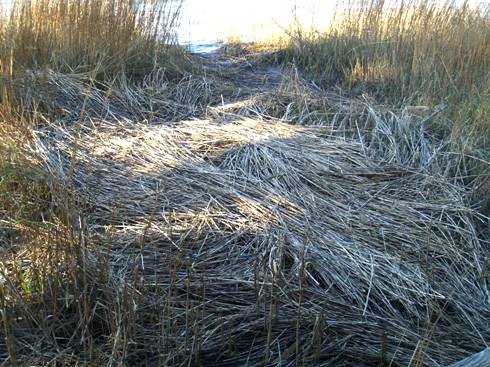Skidaway Institute of Oceanography professor Clark Alexander is looking for volunteer scientists to help him assess the problem of marsh wrack.
Marsh wrack is the dead marsh grass that forms large layers on top of the water or the marsh surface. Alexander is seeking volunteers willing to identify and photograph sites where wrack accumulates on at least a weekly basis throughout 2011.
As part of a grant funded by the Coastal Zone Management program, Alexander is working to assess the distribution and persistence of wrack in salt marshes throughout coastal Georgia. He and his team are using aerial photography to determine how much wrack is present in coastal Georgia and where wrack is found in different seasons.
“One additional issue that we want to address is how long wrack persists in a variety of marsh settings,” said Alexander. “To do that, we want to enlist the interested public to help us in documenting marsh wrack sites.”
The first step for any interested volunteers is to identify a site they are willing to photograph on at least a weekly basis.
“If you have a site you know accumulates wrack each year, but which has not accumulated any yet, you can monitor it for this project,” said Alexander. “Just start taking pictures right away so that we will have documentation of when it accumulates.”
Volunteers should have access to a digital camera and an email account, but no other specialized equipment is required.
Interested volunteers should send an email to Alexander at clark.alexander@skio.usg.edu. He will provide a specific set of instructions.



